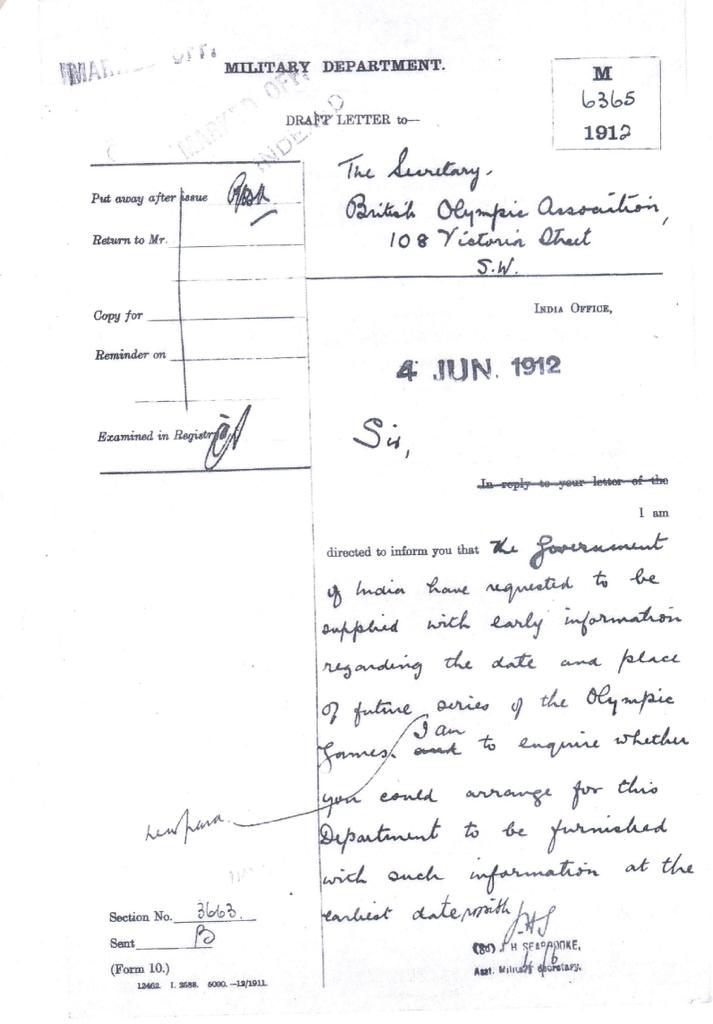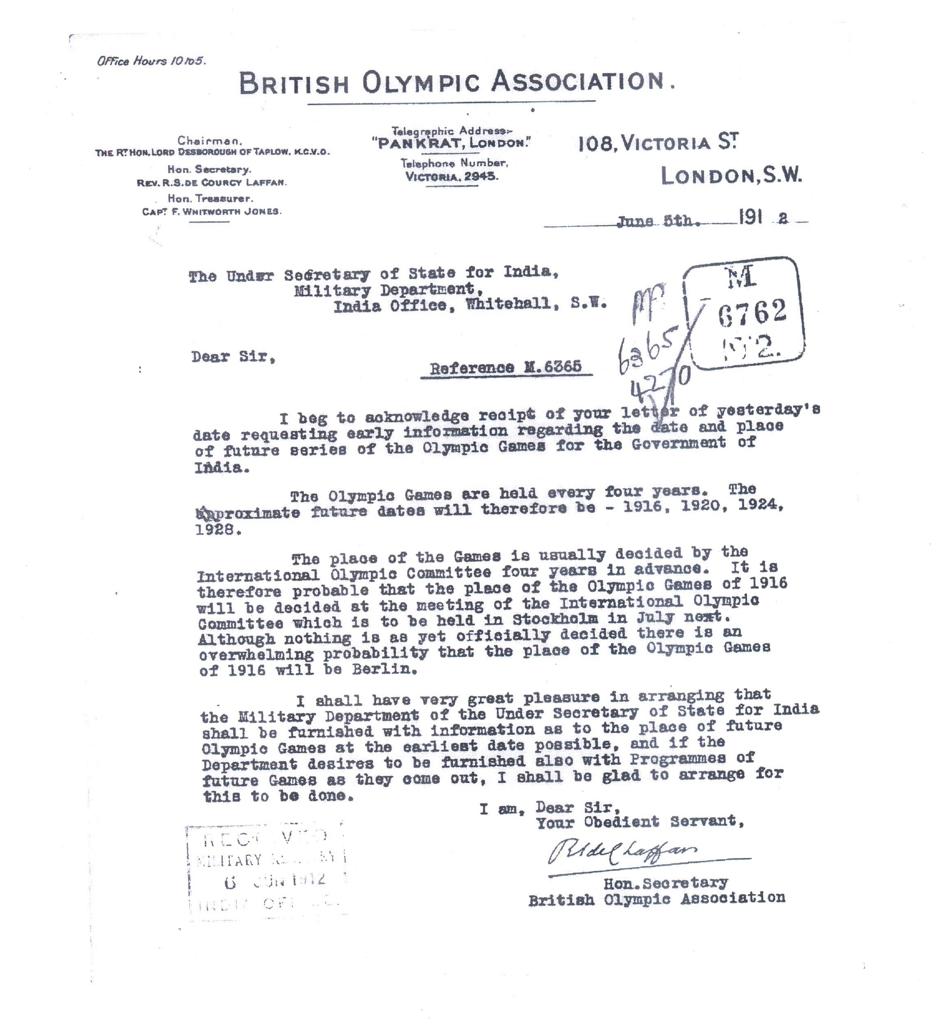When did India’s engagement with the Olympic movement start? And to what date can we trace back this engagement? How did things evolve? On the eve of Olympic Day, these are some of the questions we must ask ourselves.
Existing writing on India’s Olympic history has traced the story back to 1920. It was in Antwerp, Belgium, that India first participated in the Olympic Games. This is what has been accepted for years now as the start of the Olympic movement in India.
Interestingly, however, documents at the Public Records Office in Kew Gardens in London trace India’s Olympic story back to 1912. This was almost a decade before India sent its first team to Antwerp. These documents, a couple of which are being reprinted for the reader’s benefit, demonstrate that a series of letters were exchanged between the British Olympic Association, the International Olympic Committee and the India Office, discussing the prospects of Indian participation at the 1912 Stockholm Olympics.
Had such participation taken place, India would have become the first Asian country to embrace the Olympic movement, alongside Japan, which established a national Olympic Committee in 1911 before participating in the 1912 competition – the first Asian country to do so.
Furthermore, the exchange of letters did not abate after the 1912 Games. Rather, the frequency of the letters only increased, as all sides focused on the prospects of India’s participation at the 1916 Olympic Games, which were meant to be held in Berlin. It is a different matter that these Games eventually did not take place because of the outbreak of the First World War.
Yet, as the trail of newly unearthed documents demonstrates, India would surely have sent a team to the 1916 Games, had they not been cancelled. This is borne out by the Indian request to have advance intimation about the dates of the 1916 Olympics to ensure that requisite funding to send a team was in place.
The standout feature of these letters is the debate on what Team India, at a time when we were still a British colony, would be called? Would the athletes participate under the India banner, or would they represent Britain? If they represented British India, what would that mean for the Olympic Games in general? Chances are that the success of the All-India cricket team’s tour to Britain in 1911, organised by the Maharaja of Patiala, the leading patron of Indian sport, acted as a catalyst for India’s Olympic participation. Patiala’s tour received widespread support among the sporting community, both in India and the UK, and is considered a turning point in the history of Indian sport.
Among the many dispatches discussing India’s participation, it is evident that funding was a key issue. Who would fund the team, and how many of the athletes were entitled to receive support from the Olympic host city was a constant thread of discussion in these dispatches. That nothing came out of this effort doesn’t reduce the significance of this exchange because an ideational foundation had already been laid.
It was on this basis that the superstructure to send an Indian team to the 1920 Olympic Games was built. These documents have added a new chapter to the story of India’s tryst with the Olympics, and helped date the story back more than a century, to 1911-1912.






